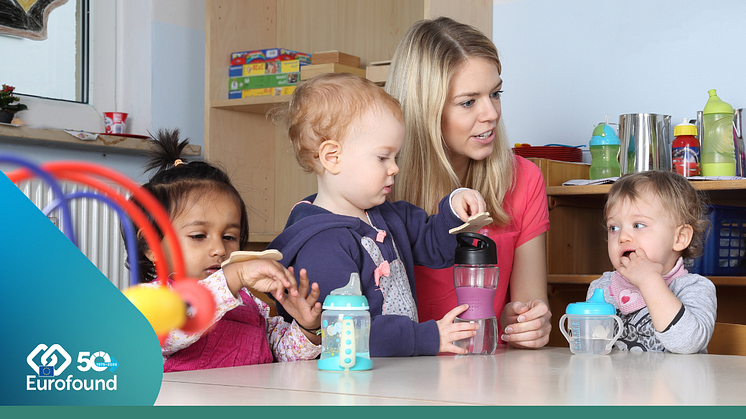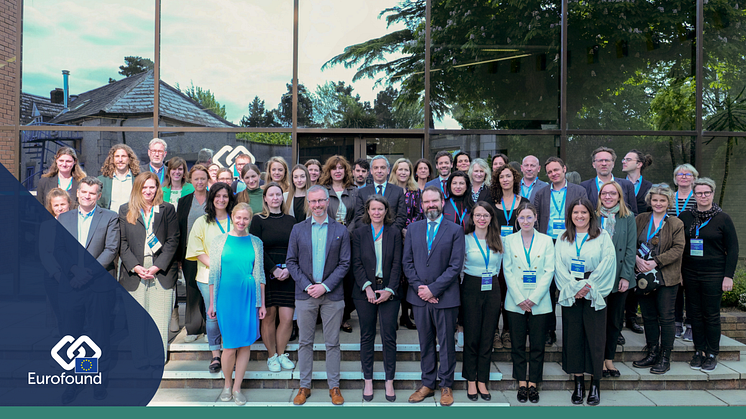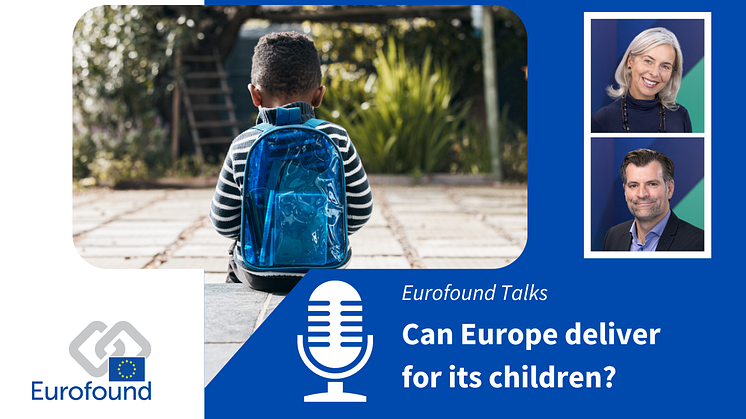
Press release -
Europe advances on child poverty but workforce support lags behind
A new Eurofound report reveals encouraging progress in reducing child poverty and boosting early childhood education and care (ECEC) participation across Europe. However, the report strongly emphasises that the sustained well-being of children hinges on urgent improvements to the working conditions and training of the professionals delivering these essential services.
The analysis in the Working for children matters report highlights a positive trajectory in child poverty reduction over the past decade. In 2024, 24.1% of children in the EU were at risk of poverty or social exclusion (AROPE), a notable decrease of over 3 percentage points since 2015, moving towards EU targets. However, child poverty is still higher than the poverty rate for the general population, which stood at 20.9% in 2024.
There has also been encouraging developments related to increased participation in ECEC. Data shows that almost four in ten (39.2%) children under three years old participated in formal childcare in 2024. This growing engagement in early education is crucial for fostering better developmental outcomes for young children.
Despite these advancements, significant challenges persist. The report notes a concerning decline in children's mental health, with unmet healthcare needs in 2024 still being higher than pre-pandemic levels in 2017, and a drop in educational performance.
The root of these issues often lies in the precarious working conditions and insufficient training opportunities faced by healthcare, education, and ECEC professionals. These problems—including poor work-life balance and burnout in healthcare, and low pay with limited career progression in childcare and education—directly affect the quality and accessibility of services for Europe's children.
Healthcare professionals, for example, often grapple with precarious working conditions, contributing to "brain drain" in some countries. ECEC workers frequently earn near minimum wage with insecure contracts. Good working conditions, fair pay, and adequate training for staff in child services are essential in ensuring comprehensive, high-quality care.
Sustained public investment in education and a renewed focus on policies that prioritise high-quality education and child well-being are crucial. The report urges policymakers to utilise existing policy initiatives, such as the European Child Guarantee and the European Education Area, to enhance working conditions and training for the workforce.
Consistent funding and support for these professionals, including clear budgets that are effective in reaching frontline workers, are essential for ensuring the long-term well-being of Europe's children.
- Download the report: Working for children matters: An overview of service delivery and workforce in Europe
Further information
- Eurofound Talks podcast: Can Europe deliver for its children?
- Behind the podcast: Can Europe deliver for its children? (video)




